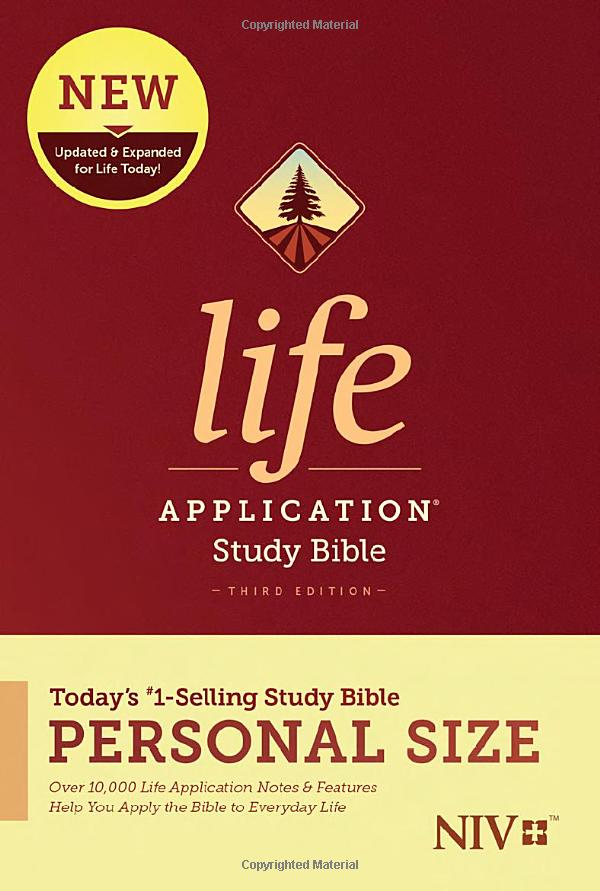In order to develop our faith and strengthen our connection with God, we want to have access to a good Bible. The word of God is obviously a huge part of our spiritual practice as we grow as Christians. If you’re thinking about looking for another one, this article will give you some insight into purchasing your next Bible.
People who are seeking God find much comfort, peace, and direction within the pages of scripture. Sometimes they want a Bible that includes additional commentary by scholars and authors, and sometimes they may just need one that only contains the simple text of the scripture.
It’s a possibility that you haven’t owned your first Bible yet. If you do already own or have multiple Bibles, that’s awesome. However, after time passes and your reading and study increase, it may be time to think about getting a new Bible. Plus, it can be exciting and spiritually motivating to get another Bible. You may find that a new Bible will prompt you to read more or venture into more Bible study.
There are actually many good reasons to purchase a new bible, such as the desire to read a translation that more accurately reflects how you might speak. Or, you may be stepping up from just a general text of the Bible to a study Bible. Certainly, there are New Testaments available, but we highly encourage you to buy the entire Bible Old Testament, and New Testament together.
You may want one that has a different size, weight or feel. Plus, how you study or simply the physical feel and size of the bible may be things that would make you consider adding another Bible. You also may need one that has additional study aids and supplementary help aids to help you understand the text.
There are so many types of choices and considerations when purchasing a Bible in today’s Christian market, it might be a more difficult task than it once was. But with a little help and support it can be much easier. So, in this post, let’s go through several items that you would consider when purchasing your next Bible.
What To Look for Purchasing Your Next Bible
Translation
The Bible’s translation is perhaps the biggest consideration when beginning to choose a Bible. You want to make sure that you have a dependable and accurate translation of the Bible.
Word For Word Translation (Formal Equivalence)
A word-to-word Bible translation in which the translators try to stay as close as possible to bringing individual words and phrases into the language to which you are translating. The translators attempt to match each word, phrase, or concept as precisely as possible. Many times people will refer to this as a literal translation.
In word-for-word translation, it might only give one English word (or maybe a phrase) for every word or phrase that will be found in the original language. It might also keep the same order of words if possible.
However, a literal translation – a formal equivalence – might translate the words so precisely that the reader in the new language might not understand because words can have various meanings in various cultures.
Word-for-word translations would be Bibles such as the English Standard Version (ESV), New American Standard Bible (NASB), New King James Version, and perhaps the Coleman Standard Bible (CSB).
Thought For Thought Translations
On the other hand, a thought-for-thought translation may be more suitable if you’re looking for readability and a modern sound of the text. Thought-for-thoughts tend to examine the larger sentence and do translate the thought or meaning of that verse over into the new language.
They will rearrange the order of the wording in the previous language if they believe that doing so will better serve the accuracy of the text in the language to which they are translating.
One of the thought-for-thought translations that we recommend is the New Living Translation (NLT).. We especially like the Life Application Study Bible in the New Living Translation.

Also, some Bible translations use a bit of both types of translations. To me. I’m not hung up on either. I just want the best literal meaning of a particular passage in the English language that I can get for each chapter or verse of the bible that I read.
I want it to be as close to the original meaning as possible, given that it has to be in English terms that I can at least understand with a bit of study. Sometimes it’s accomplished better word by word, and sometimes phrase by phrase.
From the point here at LivingPraying.com, I won’t recommend a Bible that I don’t believe is an accurate translation of God’s word no matter what type of translation it is considered to be. Some of the translations recommended here are:
- New International Version (NIV)
- New Living Translation (NLT)
- New American Standard Bible (NASB)
- Contemporary English Version (CEV)
For devotional reading, sometimes we will recommend a paraphrased Bible. However, in terms of those times you set aside to really study God’s word, we wouldn’t necessarily recommend a paraphrase. They are more imaginative and interpretive approaches to the Bible.
A paraphrase may be the way to go if you are looking for some light devotional reading, but it’s not the best for Bible study or for your everyday Bible, although it does provide an interesting take on the meaning of Bible verses that you might be studying.
These versions do not provide necessary literal translations of the Bible, but rather they usually give the translator’s interpretation of the text. They can be helpful resources and I use them occasionally just to see their interpretation. for instance, Eugene Peterson’s “The Message” is a paraphrase that I look into from time to time. It’s very helpful at times, but I wouldn’t use it as my primary Bible.

Study Tools for Learning
Now, when you’re purchasing your next Bible, you will want to consider some study tools that may or may not be included in your Bible. You’re going to want to consider whether or not you want maps, study notes, and commentary about the scripture passages. A concordance to look up words in the bible that you need to find is greatly beneficial also.
These are things to think about when you have your mind made up about the translation of the Bible that you want to get.
For example, if you have maps in the Bible, which most actually have, it can help you gain a sense of familiarity with the structure of the biblical world in terms of geography. They can help you identify the names of the countries, cities, and regions in terms of what they were called in biblical days versus now.
Even some very inexpensive Bibles have some maps, but the more you spend on a Bible may mean you will have a series of all sorts of maps and charts to help you understand the connection to biblical times and today. The use of notes and cross-references in a Bible can enrich your understanding of the text by providing context and illuminating previously unseen connections.
You may very well want one with a good cross-reference system that will help you look up related verses. Or, do you want the words of Jesus in red, as many versions do? That is a matter of preference.
So, give some thought about what types of features you may want in your next bible. For the general reader, the more features that you have access to, the more you may be able to understand the text.
Study Bibles are a great way to go in terms of a lot of aids that you can use when studying God’s word.
Also, if you are someone who likes to journal along with your Bible reading or bible study, you might want to consider one of the many journaling Bibles.
Bible Size
Okay, just for the sake of practicality you want to consider the size of the Bible you get. You want to know the physical dimensions of the Bible you purchase. This consideration may be made according to how you are going to use a particular bible.
If it’s a Bible that you are going to carry with you in many situations then you might want a smaller Bible than the one that you keep at home for deeper study.
There again, the size of the text and the amount of study aids you get in a bible can greatly determine its size. A large print Bible can obviously take more room on the page than a small print size. So, be careful in choosing a font size that will be good for the type of eyesight that you have.
There are a lot of large print Bibles on the market now if you need one. When I was in my 20s I could use a much more thin line bible that had very small text, whereas now I need the text a bit larger AND I enjoy the extra study aids.
For instance, a pocket Bible or a larger, but more thin-line Bible may be great to have when you’re away from home. However, if you’re older or you just don’t have great eyesight, the actual text in a pocket Bible may be too small for you to read.
Those are just considerations and choices that you will have to make as an individual according to what’s best for you. Young Adults may prefer a smaller Bible where the font size is much smaller.
On the other hand, a larger version may be preferable if you plan to keep your Bible at home and use it for in-depth study.

Hardback, Soft Cover, Paperback
There are a variety of Bible editions available, from hardcover to paperback,
While hardcover bibles can be durable and reliable, so can a nice leather bible – which is my preference. I love the feel of a leather-backed or bonded leather Bible in my hand.
In terms of paperback Bibles, we would generally only promote those when you need to buy bibles in bulk that will reach a lot of people. Or, if you just would like to have a different version of the bible to look at from time to time.
It’s not that there is anything wrong with the scripture in the paperback bible. It will be the same. It’s just the durability of the Bible that we have to consider if you look at the idea of a paperback. However, those can be very economical. This brings us to another aspect of purchasing a Bible.
Cost
When it comes to the cost of the Bible, we say to get what you can afford. If a 10-dollar paperback is all that you can afford, then go for it. However, if you have the resources to buy a nice study bible that has a lot of resources and a great cover that will last for perhaps decades, then you might pay $60, $75, $100, or more for something that you will use and treasure for a very long time.
Conclusion
In the end, the best bible is the one you actually read and learn from. The best Bible is the one you have an emotional connection to, whether that be due to its size, translation, or it may be the fact that you really like the special study tools.
Give a bit of thought to the features that you value most, and the translation that you like, because it is super important to pick a Bible that you will actually read. Obviously, the very important factor is getting one from which you will gain spiritual insights.
Picking out a new Bible could possibly have long-term implications for your spiritual development. Keep in mind that you should select a Bible that you find meaningful and enjoyable to read. Investing in a high-quality bible is a great way to strengthen your faith and your connection to God.
In addition, if you are looking for a Bible for children you may want to check our Bibles for children post. These may have additional notes or helpful articles written on a children’s reading level.
Also, we understand that many people will read the Bible on an electronic device. Many people will use an electronic device like an iPad or Kindle reader or something similar.
We’ve covered everything from translation to study tools to size to format to personal taste to price in this post so you can make an informed decision when purchasing your next Bible. We pray that you will feel equipped to select a Bible that will serve you in your reading and Bible study practices. We pray that it will help you in your spiritual life.
May it give you hope and comfort, and make a great difference in your life’s journey on this earth. We hope you will use it, study it, and teach it to others. Enjoy the process of finding your next bible and take care in your selection.





Leave a Reply